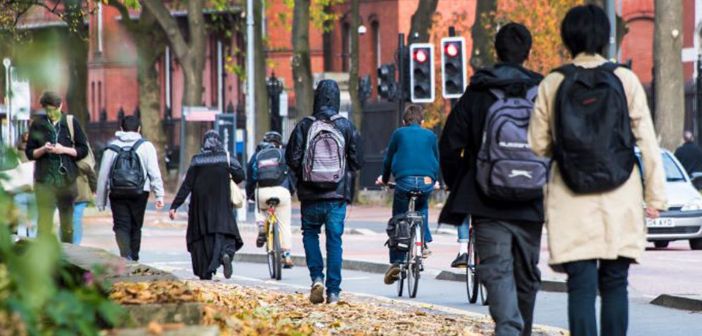The UK government has revealed its transport decarbonisation plan, which would see a commitment to all modes of domestic transport becoming emission free by 2050.
The plan includes the electrification of the entire fleet of government cars and vans by 2027. As well as a pledge to end the sale of all new, polluting road vehicles by 2040, this includes heavy good vehicles (HGVs) and combines with the 2035 phase out date for polluting cars and vans.
According to the consultation, there would be a 2035 phase out date for vehicles weighing from 3.5 to 26 tonnes and 2040 for vehicles weighing more than 26 tonnes – or earlier if a faster transition seems feasible.
Furthermore, under the plans the UK’s rail network will be net zero by 2050 and all domestic aviation would be emissions free by 2040, with a transition to green shipping in the same year.
Transport secretary, Grant Shapps, said: “Transport is not just how you get around. It is something that fundamentally shapes our towns, cities and countryside, our living standards and our health. It can shape all those things for good or for bad.
“Decarbonisation is not just some technocratic process. It’s about how we make sure that transport shapes quality of life and the economy in ways that are good.”
However, the Institute for Public Policy Research called the plans a ‘missed opportunity’ and called for a focus on clean affordable alternative to EVs including free local public transport.
The IRRP recommends upgrades to local public transport, and for it to be made free to all users throughout the UK by 2030, with free bus travel by 2025 as a first step.
Luke Murphy, head of the IPPR Environmental Justice Commission, said: “The government’s proposals to phase out the sale of new diesel and petrol heavy goods vehicles are welcome, as is the consultation on a potential industry mandate for zero emission vehicles.
“We need to massively expand the provision and affordability of clean public transport options, such as trains, buses and trams, while helping more people to regularly walk and cycle, alongside a shift to electric vehicles for those that need them.
“We also need to see a firm commitment from the government to review the £27bn roads programme, including schemes that are currently planned as well as future ones.”





